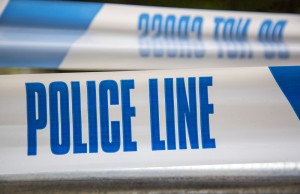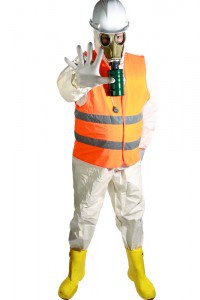Trauma & Crime Scene Cleanup | What Crime Scene Cleaners Do
Trauma & Crime Scene Cleanup
 After a crime or other traumatic event makes a home or business inhabitable, the very thought of cleanup might be incomprehensible. If you find yourself in such a situation, contact Allied Restoration Company.
After a crime or other traumatic event makes a home or business inhabitable, the very thought of cleanup might be incomprehensible. If you find yourself in such a situation, contact Allied Restoration Company.
Crime scene cleanup can’t be left to just anyone. Our technicians have a considerable amount of training in remediation, which involves the cleanup of dangerous materials and restoration of the area to return its previous appearance.
Seattle crime scene cleanup is a messy business, especially when a death is involved. After a person dies, the body begins to decompose quickly, causing fluids to seep out. These fluids attract bacteria, mold and insects, which accelerate the decomposition process. Cleanup technicians have to protect themselves from blood-borne pathogens, respiratory issues and flu-like symptoms.
Cleaning up human blood and bodily fluid is a high-risk operation. Blood can spread serious diseases, such as HIV, AIDS, Hepatitis B, and more, even if it has already dried. OSHA requires crime scene cleanup technicians to be certified. They must also wear personal protective equipment (PPE) to minimize contamination while completely disinfecting all affected areas.
What Crime Scene Cleaners Do
 After assessing the situation, crime scene cleaners must determine how to remove affected items. Technicians must collect all contaminated items in red biohazard bags. They need to be extremely careful to avoid puncturing themselves with any sharp objects.
After assessing the situation, crime scene cleaners must determine how to remove affected items. Technicians must collect all contaminated items in red biohazard bags. They need to be extremely careful to avoid puncturing themselves with any sharp objects.
Seattle technicians cannot dispose of biohazard bags in a dumpster because it is against the law. Instead, they must dispose of the bags in special sites regulated by the state or federal government. The cleanup company is also required to keep records of the items for at least 30 years.
Seattle companies often hire crime scene cleaners to protect themselves from potential lawsuits by employees, family members or friends. By paying a crime scene cleanup company, businesses also avoid legal issues associated with state sanitary codes and OSHA Blood-Borne Pathogens Rules. OSHA requires companies to post a Blood-Borne Pathogen Exposure Control Plan in any area where an employee may be exposed.
In addition, federal regulations state that employees cannot be exposed to blood spills without blood-borne pathogen training. Employees must also be offered the Hepatitis B vaccine, as well as a way to remove bio-hazardous waste safely.
Ultimately, trauma and crime scene cleanup is best left to the pros. To learn more, contact Allied Restoration Company at 425-458-5756.





